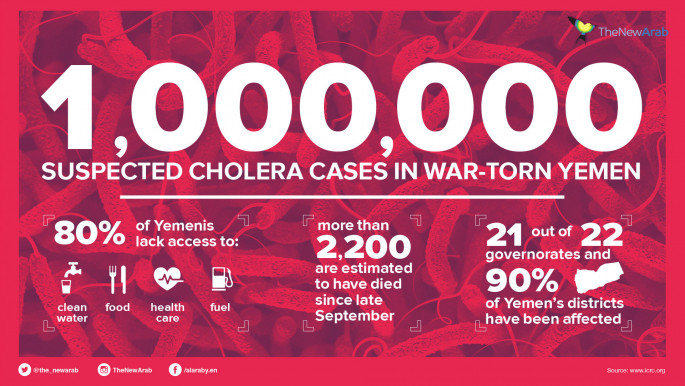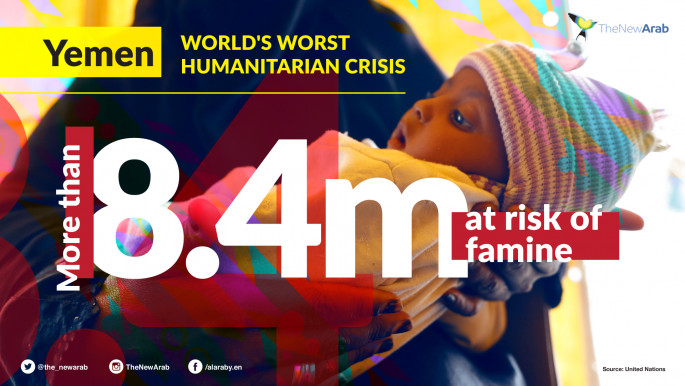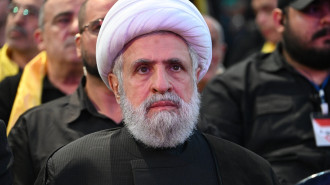Financial de-risking in the Yemen crisis: New research calls for new policies
The humanitarian crisis in Yemen, frequently described as the worst in recent history, is now being exacerbated by financial policies ostensibly meant to guard against financial terrorism.
Ongoing calls for a durable solution to the economic blockade imposed by Saudi Arabia do not address another increasingly insidious obstacle to moving funds into Yemen where they could be used to distribute critical aid.
According to a recent study from the Overseas Development Institute, a UK-based development think tank, international financial institutions have engaged in financial de-risking in Yemen - a practice that occurs when a bank deems a client too high-risk for its portfolio, and either restricts or severs its relationships.
The ODI found that de-risking has prevented Yemeni citizens and businesses from accessing letters of credit - forcing businesses to close their doors - and has restricted financing for humanitarian organisations, severely limiting local capacity to respond to recent outbreaks of cholera and diptheria.
The practice of financial de-risking gained ground after 9/11, when regulatory agencies strengthened international compliance regimes to protect against money laundering, and to counter financial terrorism (AML/CFT).
The Financial Action Task Force (FATF), a 37-member intergovernmental policy body created in 1989 with a focus on money laundering in Latin America "sets standards and promotes implementation of legal, regulatory and operational measures for combating terrorist financing and other related threats to the integrity of the international financial system".
A review of policy in this area reveals that regulations have increasingly led to the wholesale targeting of individual countries. Yemen is among a short list of primarily Middle East countries, deemed "high risk" by the Financial Action Task Force.
The FATF periodically updates its recommendations; its 2002 policy guidance cautioned that aid delivery organisations may unwittingly function as a conduit for illicit finance, carrying out their mandates even as some individual members of the organisation redirect funds to support terrorists:
"Often such fundraising is carried out in the name of organisations having the status of a charitable or relief organisation… In many cases, the charities to which donations are given are in fact legitimate in that they do engage in some of the work they purport to carry out.
"Most of the members of the organisation, however, have no knowledge that a portion of the funds raised by the charity is being diverted to terrorist causes."
 |
The International Monetary Fund (IMF) has cooperated closely with the FATF since 9/11, and considers anti-laundering and counter-terrorism efforts a core aspect of its agenda today.
In 2012, the IMF called for the widespread adoption of the risk-based approach, in which countries identify the potential terrorist-financing risks they face and take measures to mitigate them.
The G20 has driven restrictions in subsequent FATF guidance notes, calling for "enhanced due diligence by financial institutions in the United States or elsewhere", of domestic individuals such as senior management of organisations, who have been entrusted with prominent public functions:
"The implementation of the revised standard may vary from country to country. Financial institutions may also decide to impose on their customers stricter requirements than what is expected in the domestic legal framework (eg: pursuant to group policies), as permitted under domestic law."
In practice, the decision to de-risk an individual or organisation typically manifests in a one or two sentence letter of notification from the bank to the account holder. People subjected to the decision have little legal recourse and there are few precedents of people or businesses successfully challenging account closures in court.
In 2013, the Somali remittance service Dahabshil sued Barclays and received a temporary stay of execution when the bank terminated its remittance services. The case had little impact on the bank's interpretation of policy, as three years later, billionaire philanthropist Wafic Said again sued Barclays after receiving notice of the closure of his bank account. Since 2016, the World Bank has worked with Somalia's central bank to oversee remittance flows through Dahabshil's services.
FATF guidance issued in 2017 outlined the principle of using risk-based approaches when establishing financial relationships, stating that where there are higher risks, countries should require financial institutions, and a broad category of other actors named "Designated non-financial Businesses and Professions" to "take enhanced measures to manage and mitigate those risks…"
 |
The humanitarian organisation Islamic Relief has been mitigating de-risking in its business model since the early 2000s and has dealt with new impacts in Yemen.
"We find ourselves in a constant crisis management mode... We had a global major bank pull the plug on our account. They gave us the option to close the account, and we refused but they then went ahead and closed it anyway," said Imran Madden, director of Islamic Relief UK.
Sherine El Taraboulsi-McCarthy, lead author of the ODI study, has noted that the definition of what constitutes a higher risk is often vague and subject to interpretation. She found that bankers in Yemen had resorted to forming individual relationships with international banks as de-risking had contributed to the incapacitation of the central bank, rendering it ineffective at representing the banking sector at the national level.
In 2017, the IMF acknowledged that the implementation of anti-money laundering and counter-financial terrorism requirements was a factor in the recent increase of de-risking, referring to the regulatory and enforcement landscape and AML/CFT standards.
With formal financial relationships restricted due to de-risking, individuals, businesses and humanitarian organisations have relied on informal networks as a means to transfer money and conduct business, inadvertently increasing the likelihood of corruption that de-risking is meant to reduce.
El Tataboulsi-McCarthy has called on international institutions to reassess their policies for countries suffering humanitarian crises.
"There is a need to revisit de-risking policies for [international] banks, speak to banks within humanitarian crises and realise it's difficult for them to adhere to the same requirements that [international] banks would have," she said.
El Tarabousi-McCarthy hopes that increasing awareness around the practice of de-risking and its negative impacts on corruption and restriction of humanitarian access will become first steps toward revisiting AML/CFT policies in crisis contexts.
As the question of Yemen's economic future looms, the call to action to restore financing for emergency relief and everyday life, is urgent.
Rose Worden is a researcher and writer based in New York. She holds a Master's Degree in International Affairs from The New School and is focused on development and security in the Horn of Africa and MENA.
Follow her on Twitter @rswrdn

![Palestinians mourned the victims of an Israeli strike on Deir al-Balah [Getty]](/sites/default/files/styles/image_684x385/public/2024-11/GettyImages-2182362043.jpg?h=199d8c1f&itok=xSHZFbmc)


![The law could be enforced against teachers without prior notice [Getty]](/sites/default/files/styles/image_684x385/public/2178740715.jpeg?h=a5f2f23a&itok=hnqrCS4x)
 Follow the Middle East's top stories in English at The New Arab on Google News
Follow the Middle East's top stories in English at The New Arab on Google News


